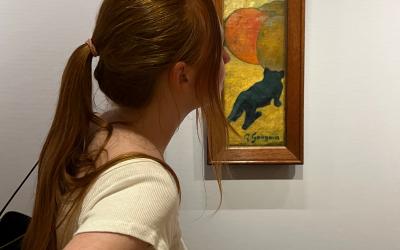Instagramming Amsterdam: Media Unfiltered will examine media ethics and literacy through the lens of visuals in one of the most iconic cities on the planet. Much of what we know about the world comes from mass media depictions, be those of the entertainment or news media. But how accurate are these images that come to mind? Walter Lippmann, a noted media scholar, wrote of profound ability of our mass media to create “pictures in our head,” which contribute to our understanding of reality. Lippmann further argues that these media-created images influence our decision making.
This study abroad experience will include classes in media literacy and media ethics. Students will travel all across Amsterdam and the Netherlands to learn to "unsee" what they have only previously "seen" through media representation. One of the premises of Prof. Foxman’s work is that all media is a construction of reality, so this study abroad experience would be all about what the media "should" do (the ethics piece) and how we as audiences can learn to "deconstruct" what we see in the media (the literacy piece). This will be done through media analysis in Amsterdam with inclusion of the media of our three professional areas: advertising, journalism, and public relations.
On this program students will explore museums such as the Rijksmuseum, Van Gogh Museum, and Anne Frank House, explore neighborhoods such as the historic Jewish Quarter and De Plantage, and leave Amsterdam to visit other cities in the Netherlands such as Rotterdam and Utrecht.
You can check-out posts made by students during the 2025 program:
https://uomediaunfiltered.substack.com/
https://www.instagram.com/mediaunfiltered



